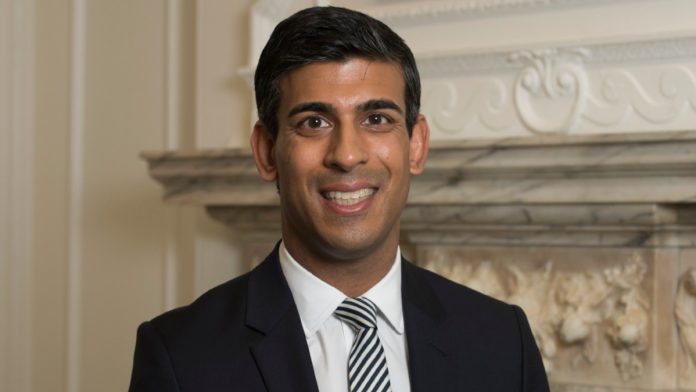
Rishi Sunak's stakes fall after raising taxes and row over Infosys

Rishi Sunak, the Indian-origin British Chancellor of the Exchequer who became the darling of the nation for handing out substantial doles during the COVID pandemic, has sunk in the popularity stakes for raising taxes and unveiling a harsh mini-budget.
Sunak, once considered more popular than Prime Minister Boris Johnson, has seen his ratings plummet thanks to the annual Spring Statement he laid before Parliament, raising the tax burden to the highest levels seen in the UK since 1940.
Sunak’s Spring Statement has been criticised from all sides. As Britain heads for the biggest fall in living standards since the early 1950s, a YouGov poll found that 69 per cent of the public thinks that the Chancellor did not do enough to address the looming cost-of-living crisis that has exercised the political discourse in recent weeks. About 66 per cent said Sunak’s announcement would not benefit ordinary people like themselves.
Disappointment across the spectrum
The Conservative Party – known for tax cuts and low public spending – MPs and voters are unhappy that their Chancellor is raising taxes. The Spring Statement, similarly, failed to impress the Left as it did very little for low-income families that are facing a 54 per cent rise in their utility bills from next month. The Tories’ achievement of the 2019 election was the support it won among the ‘red wall’ seats – Labour strongholds in north and middle England. If these seats are to be retained in 2024 then this is not the way forward.
The headlines in the British press tell the story. “Thanks for nothing” declared the front page of the Left-leaning Daily Mirror, while “Is that it?” asked the Northern Echo, widely read across north-east England. “The forgotten millions: what about us?” asked the Conservative-leaning Daily Express.
Also read: Myanmar events do not augur well for India’s security interests
During the two years of the pandemic, it was Sunak’s unprecedented interventions in the economy that got him cross-party approval and kept his personal approval ratings at a steady 60 per cent. Sunak became the only other politician in the UK, apart from Boris, known just by his first name. However, ‘Dishy Rishi’, a nickname given to him by the tabloids because of his ‘Eat out to Help out’ scheme and his stylish dress sense, is no longer the flavour of the month.
Suave, stylish leader
In fact, Sunak, who, thanks to his bespoke suits and shirts, had built a reputation as a suave and stylish leader, is now being attacked for his fashion choices and personal wealth. The day after giving the Spring Statement, Sunak was photographed in Downing Street wearing a pair of Achilles grey leather sneakers – made from white Italian leather that costs £335 a pair. The press had a field day and commentators felt this simply fed into the impression that Sunak, one of the richest MPs in Westminster, “just did not get the cost-of-living issues facing some families”.
Thanks to his earlier career in investment banking and as a hedge funder, Sunak’s personal fortune is reported to be around £200 million, and now even his wife’s immense wealth is fodder for the media. Sunak is married to Akshata Murthy, daughter of NR Narayana Murthy, the co-founder of Infosys and the sixth richest man in India. Akshata runs her own fashion label in the UK, and has interests in various brands, including gentlemanly outfitter New & Lingwood, which sells £3,000 handmade silk dressing gowns.
The Infosys connection
It is not Akshata’s business that Sunak has had to answer questions on, but her shares in her father’s company Infosys, and its office in Russia.
The British government imposed a host of sanctions on Russia after its invasion of Ukraine and Sunak had warned businesses to “think carefully” about making investments that would benefit Vladimir Putin’s regime. In the wake of his Spring Statement, Sunak was grilled by a Sky TV anchor and asked if he was ‘giving advice to others you’re not following in your own home’. Sunak dodged the bullet by arguing: “I’m an elected politician and I’m here to talk to you about what I’m responsible for. My wife is not.”
Also read: Economic consequences of the war in Ukraine
However, the matter did not end there as the Daily Mail revealed that over the past year, Infosys has made two dividend payments that would have netted Akshata around £11.7 million through her 0.93% holding in the company. “At a time when we have a responsibility to stand with the Ukrainian people as they resist Russian aggression, this is extremely concerning,” said Labour Party MP Liam Byrne, warning that Sunak has “very serious questions to answer”.
Earlier this year, Sunak was being touted as one of the frontrunners to replace Johnson if ‘partygate’ finally felled the Prime Minister. Now, Sunak’s popularity has sunk so low that people in the power corridors are wondering if he will remain as Chancellor of Exchequer in a Cabinet reshuffle expected in the next couple of months.

